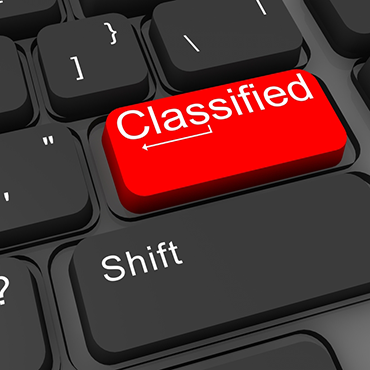Will feds get to read the Nunes memo?

A move by Republicans to publicly release a classified memo could have unintended consequences for federal employees.

The fate of a classified four-page memo by Rep. Devin Nunes (R-Calif.), the chairman of the House Permanent Select Committee on Intelligence, is riveting much of official Washington.
In a Jan. 29 intelligence committee meeting, Rep. Peter King (R-N.Y.) described the memo as "explaining what we saw were some troubling abuses by the FBI and the Department of Justice." It has been widely speculated that these "abuses" are related to the use of wiretaps under the Foreign Intelligence Surveillance Act on one or more individuals associated with the Trump campaign.
Under House rules, the committee can vote to publicly release classified information that it deems in the public interest. The president then has five days to register disapproval. If the president disapproves, the full House can still vote to release the information.
President Trump indicated in comments after the State of the Union that he was backing the release, although the White House, according to a Washington Post report, is holding up release while officials consider redactions for law enforcement sensitive information.
An FBI statement released to reporters Jan. 31 said the agency has "grave concerns about material omissions of fact that fundamentally impact the memo's accuracy."
One question federal employees should ask, however, is whether it is okay for them to read the Nunes memo, which may be released with unredacted classified information.
According to Washington attorney Mark S. Zaid, whose practice includes representing federal employees and contractors involved in security clearance cases, it's a question worth considering.
The House rule has never before been used, as HPSCI Ranking Member Adam Schiff (D-Calif.) noted in a Feb. 1 speech at the University of Pennsylvania, so there isn't much to go by in the way of precedent. Schiff and others on the committee frequently refer to the House authority to declassify information, but that doesn't reflect the precise language of the rule.
"The House has no authority to declassify executive branch information," Zaid told FCW in an interview. "Nothing in the rule even speaks to it."
The rule, Zaid explained, gives the House the ability to publicly disclose classified information when they decide the public interest outweighs any equities with regard to secrecy or individual privacy. The information itself remains classified, he said.
On the other hand, restrictions on viewing classified information on unclassified systems by federal employees are quite clear.
When Wikileaks published classified State Department cables on its website in 2010, the Office of Management and Budget sent a formal reminder to every federal employee's email inbox on rules and regulations about accessing classified information on unclassified systems.
The warning noted that, "classified information, whether or not already posted on public websites or disclosed to the media, remains classified, and must be treated as such by federal employees and contractors, until it is declassified by an appropriate U.S. Government authority."
In the case of the information in the Nunes memo, that authority would be President Donald Trump himself, Zaid said.
"If the president is going to approve of its release, he should declassify it properly as the rules require," he said. "Process matters -- and it's supposed to matter for the lowest-level employees to the most senior person."
It's not clear whether OMB is anticipating a need for similar guidance to federal employees for the Nunes memo. An email request for comment to OMB was not immediately returned.
The Information Security Oversight Office at the National Archives Information, where classification policy is developed, has neither seen the Nunes memo nor been asked about it by the White House or Congress, according to a NARA spokesperson.
Zaid doesn't anticipate adverse action being taken against any federal employee who might read the Nunes memo on a work computer.
"There's two different things here," Zaid said. "What the law is and what reality is." At the same time, Zaid wouldn't recommend that federal employees read the memo if it's released with classified information.
"My recommendation to clients is – this is what the law is, this is what the policy is," he said. "You need to do a risk assessment – do you want to be the test case the government decides to go after?"



